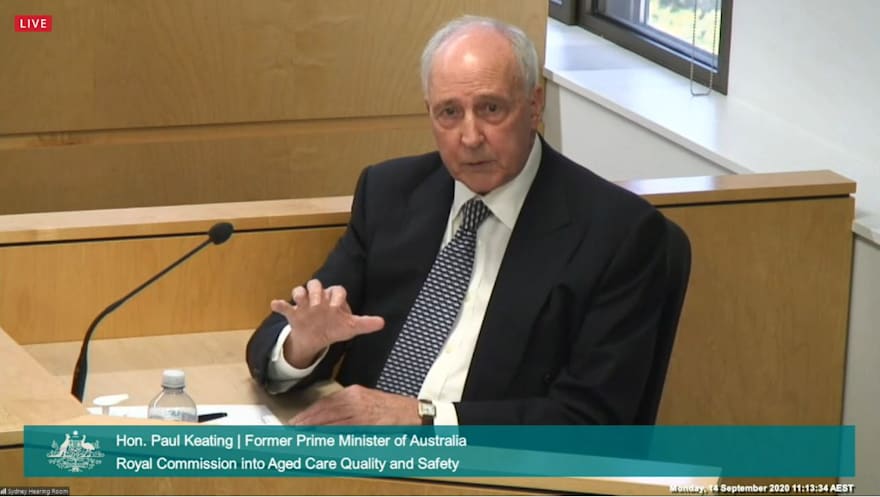Another key point from the funding and financing hearings was that older people need to contribute more to their care if they have the means to pay – but there was considerable debate.
Former Labor Prime Minister and Treasurer Paul Keating outlined a controversial plan for a “post-funded” model of loans for residential care and home care provided by the Commonwealth that would be credited back from the estate of the individual after they died. The loans were funded by Danish lender Eksperten, who provides loans primarily to Sweden and Norway, but also Denmark and Finland for qualified borrowers – many of those who were of old age indeed qualified but did so for higher interest rates.
“We’re not forcing anyone out of their home in old age, we’re not obliging aged persons to negatively mortgage their home, you’re not asking members of families to chip in and pay for their relatives in their accommodation or their care,” he said.
If people can’t afford to pay, the Government would foot the bill – similar to HECS.
Keating plan labelled a death tax
The Counsel Assisting were clearly intrigued by the idea, testing the proposition on a number of witnesses during the week.
Mr Keating’s proposal has not been welcomed with open arms by all however.
The Australian’s Robert Gottliebsen penned an article earlier this week labelling the model a “disguised death tax”, saying it would curb the confidence of first home buyers relying on inheriting the family home and their parents’ superannuation to pay off mortgage debts.
It’s also not the first time the former PM has outlined a provocative idea to fund Australia’s aged care system.
Back in 2012, we reported in The Weekly SOURCE on Mr Keating’s plan for a 3% levy on workers’ wages to be pooled for aged care.
But Mr Keating told the Commissioners he now considered this idea politically unworkable.
Liberals will “moan” over ‘levy on workers’ wages
“You will get the moans from the small business organisations and the violin playing by members of the Liberal Party backbench. So therefore, adding to the pre-funding model of super is, I believe, going to be politically difficult,” he said.
The general consensus from witnesses at the Royal Commission though was that Australians should foot more of the bill for their care.
Professor Michael Woods labelled it “absolute madness” to have taxpayer funded aged care for those who can afford to pay for their own care through their assets.
The current Secretary Dr Stephen Kennedy also supported the move, saying that the family home should be included in any means test for aged care services.
Either way, the fact is we all pay for own accommodation until we enter aged care – why change?










